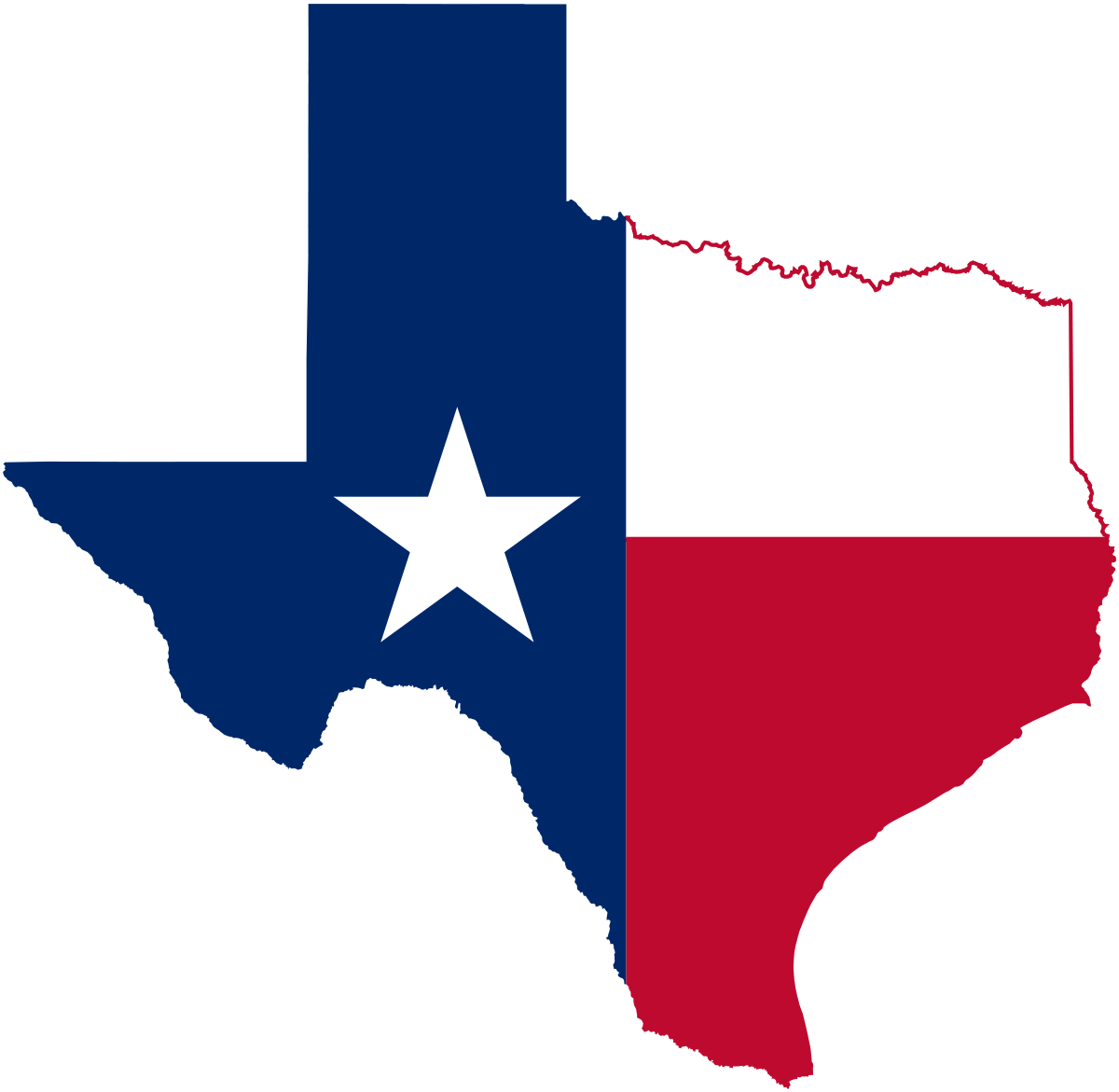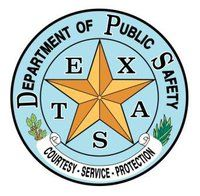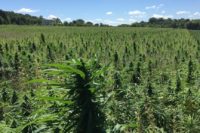A Uniquely Texas Approach to Cannabis
The last few decades have seen the United States move forward state-by-state with the legalization of cannabis. Every state is charting its own unique path, and nowhere is this truer than with the state of Texas.
The Lone Star State has made its way from being staunchly anti-cannabis to expressing its own blend of temperance and careful action, combined with a medical cannabis program that’s expanding.
Any predictions regarding the future of cannabis in Texas must take into consideration both the state’s past and its values. In the end, it’s clear that Texas will embrace cannabis in its own individual way and at its own pace, but with a timeframe that appears to be arriving sooner rather than later.
The Debate Continues
108 years after Texas first banned cannabis and the debate continues. Even though Texas has a medical cannabis program, cannabis is still illegal in the state, with possession of less than two ounces a misdemeanor. Possession of more than four ounces is a felony punishable by a $10,000 fine and from 2-99 years in jail.
Texas’s 2015 Compassionate Use Act created the state’s medicinal cannabis program, which now makes treatment available only in the form of low-THC oil of a maximum strength of 1%, and only to a small list of serious conditions: epilepsy, terminal cancer, autism, multiple sclerosis, amyotrophic lateral sclerosis (ALS), seizure disorders, incurable neurological disorders such as Alzheimer’s, Parkinson’s, Huntington’s Disease and PTSD.
Support for a Stronger Medicinal Cannabis Program Comes from Prominent Politicians
Texas Department of Agriculture Commissioner Sid Miller, a leader in Texas politics and one of the architects of Texas’s burgeoning hemp industry, has encouraged Texas legislators to create a more complete medical cannabis program.

“I am for medical use,” Miller said in an August 2023 interview. “We have so much good science now. And we know what diseases it can treat, yet our legislature picks winners [and] losers. If you’ve got this disease, you can get treated, but if you’ve got this disease and cannabis will help you, you can’t get treated. We need to let the doctor-patient relationship make those medical decisions and not some bureaucrat or some politician … I’m not a supporter of recreational marijuana, but if someone has a condition that this chemical will help, they should be able to use it.”
Texas Representative Joe Moody from El Paso has worked for many years to promote adult-use cannabis. He recently co-authored two pro-cannabis bills, HB 1805, which would have expanded covered medical conditions and defined a per-doze THC limit instead of a percentage limit on cannabis products, and HB 218, which would have decriminalized cannabis.
Although both bills passed the House of Representatives, they were stopped in the Senate. The next session of the state legislature, which happens every two years, won’t begin until January 2025, so that is the earliest any change in cannabis statutes could take place.
The Future of Medicinal Cannabis
There are currently only three dispensaries in Texas. They appear to be servicing the state’s 268,000 square miles through a series of weekly drop-offs to satellite “partner locations,” which are open an average of only two days per week. This is not exactly a corner-CVS type of arrangement, and the need for new dispensaries for the state’s 61,000 registered patients is high.
The Texas Department of Public Safety took applications for new medical dispensary licenses between January and April 2023. Tony Gallo, managing partner of Sapphire Risk Advisory Group, which helped twelve licensees prepare their applications during this round, anticipates around ten new dispensaries being approved.
All licensees must be vertically integrated – product must go from seed-to-sale under one license – and each applicant paid $7,356 to apply. If approved, the applicants will owe another $488,520.00 for a two-year period.
Many knowledgeable Texans, including Agriculture Commissioner Sid Miller, predict a fully-functioning medicinal cannabis market is just a few years away. “If you can get it to the floor, probably 70% or 80% of the legislative body will vote in favor of it because we have such good science on it. [Originally] we thought, ‘Well, that’ll lead to recreational use or more drug use,’ but it’s not. It’s a plant derivative. Medical marijuana is not nearly as addictive as some of the prescription drugs we use now.”
The Push is On for Adult-Use
Representative Joe Moody believes that adult-use is not too far away in Texas’s future either, and that the way to speed its arrival is through education. He recently sponsored HB 3652, the Texas Regulation & Taxation of Cannabis Act, in order to start a dialogue on what a retail cannabis market will look like in Texas.

On April 26, 2023, Moody and his bill received a public hearing in the House Committee for Licensing and Administrative Procedures in which many points about setting up a retail market in Texas were discussed. A 10% cannabis tax was proposed by Moody, to be split evenly between the state and local government. Licenses would be required for those growing, selling, transporting or testing cannabis, although individuals would be allowed to grow or possess it in small amounts for personal use. Legal sale and consumption would be limited to adults 21 years of age and older, like alcohol. And of course, cannabis possession would be decriminalized.
How Strong is the Market Potential for Cannabis?
One indication of how strong even a fully-open medical cannabis market might be in Texas came during Moody’s hearing from the testimony of Estella Castro. Castro owns two medical dispensaries in Oklahoma just across the state line from Texas and suspects most her buyers are from Texas. “They have a Texas plate and they come in and buy $500 to $600 worth of product,” she said. Her two shops generated $158,000 in taxes to Oklahoma, most of which she believes should have gone to Texas.
New Mexico recently legalized adult-use cannabis, and the small towns along the Texas-New Mexico border are seeing a lot of traffic from Texas. In the first week of adult-use sales, the New Mexico did adult-use sales totaling $6 million. Of those sales, $1.5 million came from dispensaries in 5 small border towns.
Florida and California Suggest the Scope of a Mature Cannabis Market in Texas
The potential for a fully developed medical cannabis market can be gleaned by studying the next smaller state, Florida, which has an open, mature, medical cannabis market. Florida, with 20 million people, is about two-thirds the size of Texas, which has 30 million inhabitants. Right now, Florida boasts 700,000 cannabis patients whereas Texas only has 61,000. Simple math suggests a fully open, mature, medical cannabis market in Texas could see over a million patients gain relief.
California is the nation’s most populous state with 39 million inhabitants, and its cannabis revenue gives some perspective as to the size of a Texas adult-use market. 2024 estimates of California’s cannabis revenue suggest the Golden State will see $7.2 billion legal cannabis sales while the illegal market will generate another $6.4 billion for a total of $13.6 billion. With a reduction for Texas’s smaller size, these numbers suggest a fully-mature Texas adult-use cannabis market could generate close to $10 billion in annual revenue.
Large adult-use states like California and New York are notorious for having an illicit market that threatens to derail their legal, tax-paying cannabis license holders. Texas’s strong business-friendly focus should help deter such an illicit marketplace from gaining too significant a foothold.
The Back-Door Cannabis Industry
Meanwhile, an extensive “back door” cannabis industry is in full swing in Texas. CBD shops now sell delta-9 (fully psychoactive) THC/CBD gummies and tinctures made from the hemp plant, which is the low THC-version of the cannabis plant. These THC/CBD products adhere to the 0.3% definition of hemp as required by the federal 2018 Farm Bill and are legal and available for over-the-counter or online purchase in Texas’s CBD stores.

Current estimates are that there are over 5,000 hemp, CBD and cannabinoid retailers, manufacturers and distributors in Texas that employ more than 50,000 workers and generate more than $8 billion in annual revenue. With these numbers, the 1,100+ licensed Texas hemp growers are sitting well where they are and are poised to take advantage of a legal adult-use market if and when Texas decides it is ready to go down that path.
Next Steps for Texas’s Cannabis Market
People familiar with Texas’s cannabis market believe that adult-use is a ways down the road for the Lone Star State, and that the near-term focus needs to be on decriminalization and achieving an unincumbered medical cannabis system. Tony Gallo of Sapphire Risk Advisory Group advises the Texas cannabis community to concentrate on “increasing what conditions are allowed for medicinal use” and “increasing what areas of the state it’s allowed to be sold.”
There is a groundswell of public support for decriminalizing cannabis as well as for allowing adult-use. A December 2022 poll showed 55% of Texans support legalizing at least small amounts of cannabis for recreational purposes, and another 28% said it should be legal for medicinal purposes.
A February 2023 poll by the University of Houston found that 82% of Texans support the Legislature passing a bill that would allow people to use marijuana for a wide range of medical purposes with a prescription. The belief that cannabis is a “gateway drug” that would make people more likely to use other illegal drugs is losing traction as well – 70% said it would make people less likely to do so or would have no impact.
Final Thoughts
The demand for cannabis in the Lone Star State is strong. With the likelihood of a fully-functioning medical cannabis market coming soon, and the possibility of decriminalization not too far behind, it’s clear that the future of cannabis is bright in Texas.
While the legalities around adult-use will take longer to work out, and the place of hallucinogenic hemp in the mix needs to be examined and clarified, one fact is certain. The path forward that Texas cannabis takes will certainly be a unique one, as unique and as individual as the Texan people themselves.



 The Farm Bill also removed hemp from the Drug Enforcement Administration’s schedule of Controlled Substances and authorized states to submit plans to administer hemp programs, making sure to keep the THC of plants and products under 0.3%.
The Farm Bill also removed hemp from the Drug Enforcement Administration’s schedule of Controlled Substances and authorized states to submit plans to administer hemp programs, making sure to keep the THC of plants and products under 0.3%.
